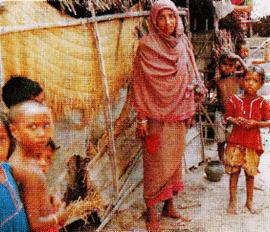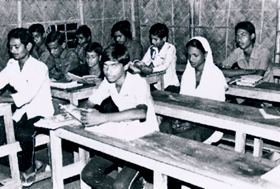
Whatever the ethnic or linguistic origin of the original wave of refugees who migrated to Pakistan, a very large segment of this population was born in East Pakistan after 1947.
Many have asked me through the years why I struggle so hard to write about a people in the world, few know or care about. The answer lies in the question it self. It is precisely because nobody knows or cares that I have stubbornly persisted. Nor will I cease that mission until the last camp in Bangladesh is closed and the last stranded Pakistani is granted the choice to either live as equal citizens in Bangladesh or the right to enter and live as full citizens of Pakistan.
The first lesson was when we made three different stops in an attempt to get fuel for the Rickshaw. Each time he rolled the sputtering pedicab in to a gas station, he was refused service. Was there rationing? A fuel shortage? “No, happens all the time,” he said. Sometimes I have to go to many stations before I can find one who’ll sell me fuel. Then I pay double. And sometimes I am refused everywhere, and lose a day’s work”. Then with a sigh he added, and of course I have to push the rickshaw all the way back to the camp.” said Nurul Islam.
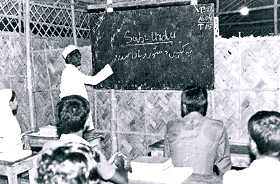
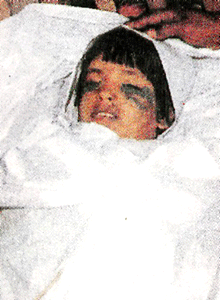
A man rushed out of the door way of his shelter. Suddenly his hands were reaching for my throat and as others pulled him back and held the violently struggling man, he screamed out, “Don’t bring any more Pakistani tourists here. We’re not animals in a zoo to be watched”. The man stopped fighting and sank to his knees. He broke down sobbing, “I am old and tired. I’ll die in this wretched camp”.
“I spent just a few days with husband who after marrying me was going to take me to Pakistan with him. But then he just left… abandoned me. Now I am left here with a child to raise and disgraced”.
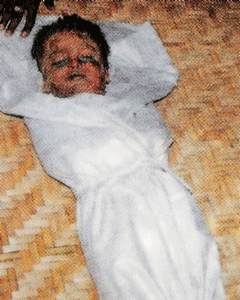
It was the conditions of the children of the camp that hit hardest during the first full day there. Most were thin, and bare-footed, the little one naked. The survival rate of babies is about fifty percent, and the odds get worse after weaning. Many had rickets, malaria and tuberculosis.
But despite the presence of missionaries, I saw no evidence of offers of relief, food, clothing, medicine or medical care. What I did see were missionaries standing around the schools or where the children congregated, passing out bibles and offering them a way out of the camps if they would accept Christianity.
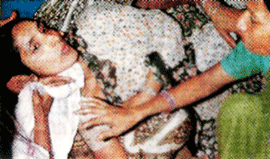
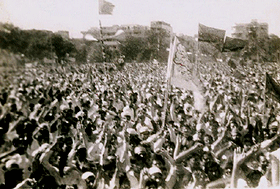
In that way, according Husnain, the missionaries have managed to lure eight thousand children from Mohammadpur camps to their missions over the past five years. Once at the mission the children are put to work making crafts and other things to sell to raise money. What education they do receive is Christian indoctrination.
As for World Vision, it apparently uses the camps to make films used in fundraising for the organization. None of the millions of dollars World Vision raises with those heart-wrenching documentaries ever benefits the Bihari camps.
With the Urdu language banned country wide, only in our schools can they still learn Urdu. But they come also because their children actually score higher in the examinations when they go through our school.
In 1978 General Ziaur Rahman ordered the army to come and evict all Biharis who were still in their homes and move us in to the camps. The army pushed a thousand families from their homes to the camps. But a few sued in the courts and were able to return to their houses.
Although they were back in their homes, the roads in front were torn out, the water, the electrical and gas lines were closed off. “And municipal tankers won’t come and drain out the cesspools, nor do we have a way to dispose of garbage, except to dump it outside the house”.
His 18 years old son had finally gotten a job as a bell boy, in the same hotel he had once managed. A 16-year old son sat quietly besides him and seemed to be ill and in pain. “I finally got a doctor to examine him, but then I couldn’t get the prescription for the medicine filled”.
